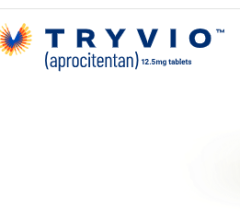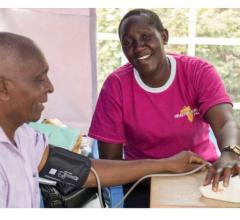
July 7, 2015 – A new document from the American Society of Echocardiography (ASE) provides detailed guidance for clinicians on how to use echocardiography to see the full picture of the condition of patients with hypertension. The paper, Recommendations on the Use of Echocardiography in Adult Hypertension: A Report from the European Association of Cardiovascular Imaging (EACVI) and the American Society of Echocardiography (ASE) is a joint project between ASE and the European Association of Cardiovascular Imaging (EACVI) and will appear in the July issue of the Journal of the American Society of Echocardiography (JASE).
Hypertension, or high blood pressure, is one of the leading risk factors for death globally, leading to a wide variety of cardiovascular problems, including coronary heart disease and stroke. While most of the general public are familiar with the traditional method of measuring blood pressure, systolic pressure over diastolic pressure, those numbers alone do not offer much information to physicians about the actual damage that may be occurring within a patient's cardiovascular system.
Thomas H. Marwick, MBBS, Ph.D., of the Menzies Research Institute in Australia, commented, "While the primary goal of treatment is to reduce blood pressure to goal, echocardiographic measures of changes to the left ventricle (LV), for instance, can help predict prognosis. This is the first international recommendation on how to use echocardiography in this patient population."
The majority of the document outlines in detail the pathophysiology of cardiac responses to hypertension, which echocardiographic measures are most significant, and how to perform them most accurately. "More research is still needed to show how clinicians can fully use the valuable information provided by echo to guide therapy and other clinical decisions," Marwick noted. "In the meantime, this paper represents a comprehensive guide on when, why, and how to gather the images and data that may influence clinician decision-making."
For more information: www.asecho.org


 September 09, 2025
September 09, 2025 









